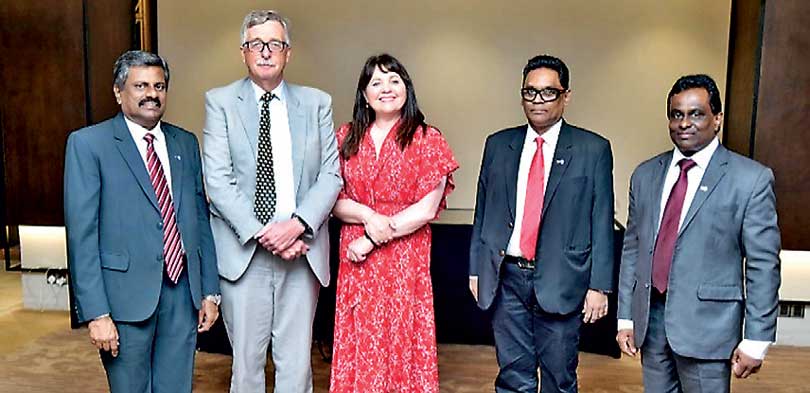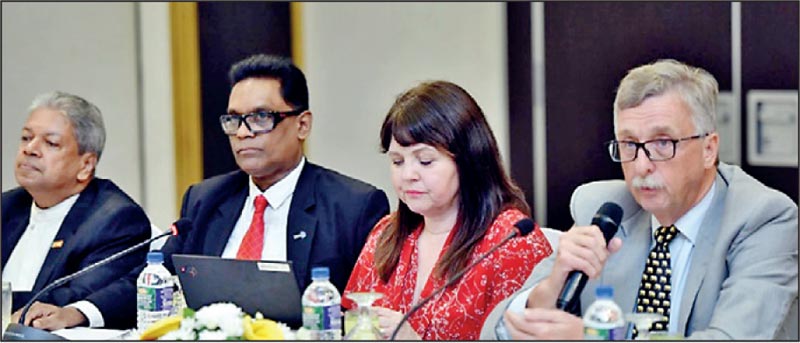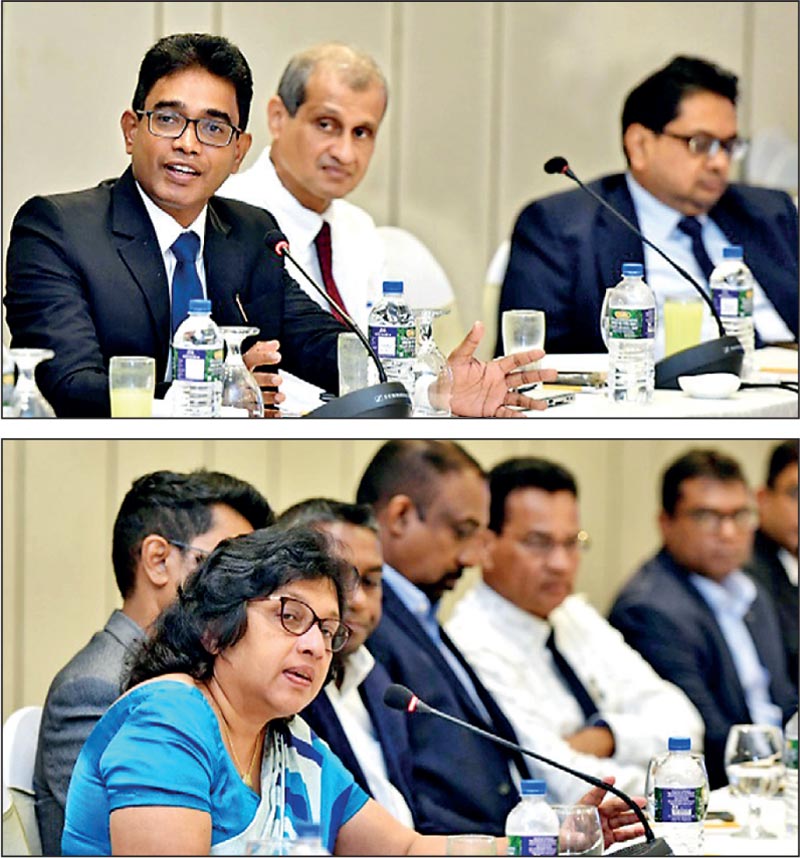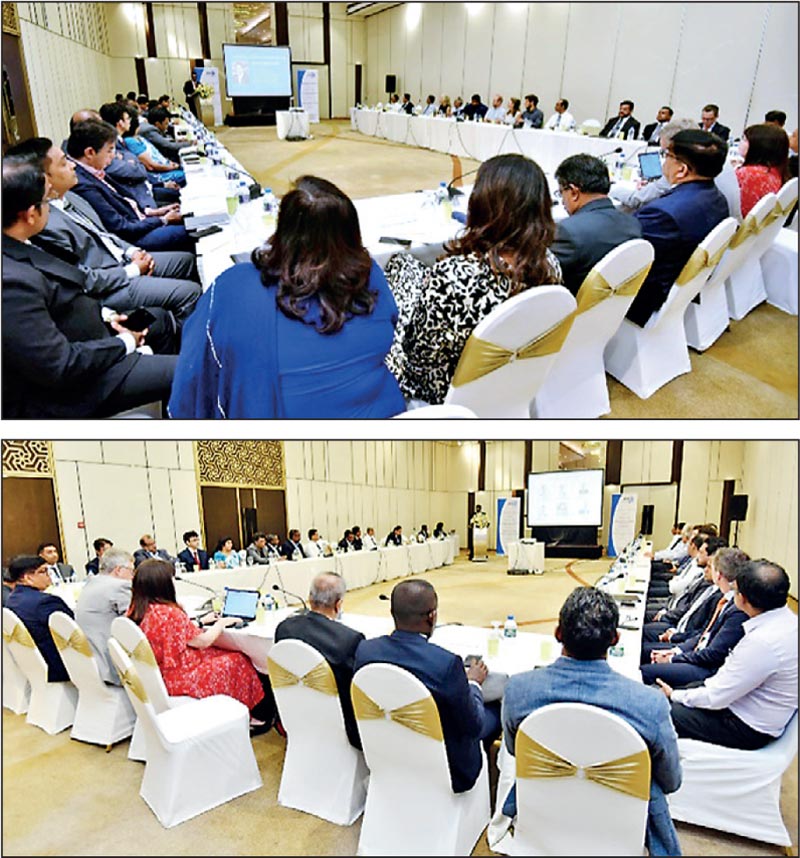Thursday Feb 19, 2026
Thursday Feb 19, 2026
Tuesday, 30 July 2024 01:56 - - {{hitsCtrl.values.hits}}

The International Chamber of Commerce Sri Lanka (ICCSL), recently led a crucial meeting with representatives from Sri Lanka’s export sector and a team from the International Monetary Fund (IMF).
The focus was to evaluate the potential effects of abolishing the Simplified Value Added Tax (SVAT) on Sri Lanka’s export industry.
The discussions led by ICCSL Policy Committee Chairman Prof. Ajantha Dharmasiri highlighted concerns about the impact of SVAT removal on the working capital of exporters and subcontractors.
A notable observation was shared by a foreign investor who highlighted the evolution from importing 100% raw materials four decades ago to now relying on local subcontractors for 70% of their raw materials, largely facilitated due to the SVAT.
It was pointed out that without SVAT, subcontractors and export support service companies would need to include VAT and cover the cost of delayed refunds, making their products and services less competitive. These sub contractors and export support service companies will have to add the VAT and the cost of funds for the delayed refunds for their products and services which will make them uncompetitive and the exporters will import the raw materials cheaper than the local sub contractors which will affect the local SMEs supplying to the exporters.
This shift could lead exporters to choose cheaper imported raw materials, adversely affecting local SMEs.
Rifka Ziyard from KPMG provided insights into the benefits of SVAT, such as enhancing cash flow for exporters and reducing the administrative burden of VAT refunds.
Amaresekara and Company Tax Partner Sandun Bandara stressed the need to retain the advantageous aspects of SVAT during potential reforms.
The IMF team, including Resident Tax Administration Advisor David Kloeden and Fiscal Affairs Department Senior Economist Cindy Negus, engaged extensively with local stakeholders.
They addressed concerns and outlined possible scenarios following the abolition of SVAT, focusing on long-term impacts like changes in export pricing dynamics and overall competitiveness.
The IMF reiterated their advisory role in revenue enhancement strategies, emphasising that policy decisions rest with Sri Lanka’s Ministry of Finance.
Prominent industry representatives participated in the meeting, including Deputy Chairman Sarath Ganegoda, and Shavindra Samarathunga – Head of Taxation from the largest conglomerate Hayleys Plc, the Joint Apparel Association Forum was represented by Former Chairman Felix Fernando and the Deputy Chairman A. Sukumaran, Hirdaramani, Group Chairman Vinod Hirdaramani, Brandix Group Managing Director Hasitha Premaratne, Brandix Deputy General Manager –Tax and Regulatory Prabath Weerasinghe, Aitken Spence Corporate Services Vice President Dinali Katepearachchi, the National Chamber of Commerce being represented by Deepal Nelson, the Free Trade Zone Manufacturers Association represented by Dhammika Fernando, Flintec Transducers Ltd. Managing Director Tyrone Weckasinghe, Shore to Shore Director Johnny Fernando and some of the BOI foreign companies were represented by General Manager Lalindra Fernando and Aero Dynamics Ltd. Deputy General Manager Caroline Ulmer, Chief Financial Officer Chiranga Jayasekera and Aqua Dynamics Ltd. Deputy General Manager Simon Schmidt, Eskimo Fashion Knitwear was represented by Managing Director Manik Santiampiallai, and Deputy General Manager Sabine Ulmer.
Participants expressed optimism about fostering an environment conducive to sustainable growth in Sri Lanka’s export economy.
This strategic stakeholder forum served as a crucial platform for dialogue and policy planning, highlighting the significance of informed decision-making in shaping the future of Sri Lanka’s export landscape amidst evolving economic policies.


